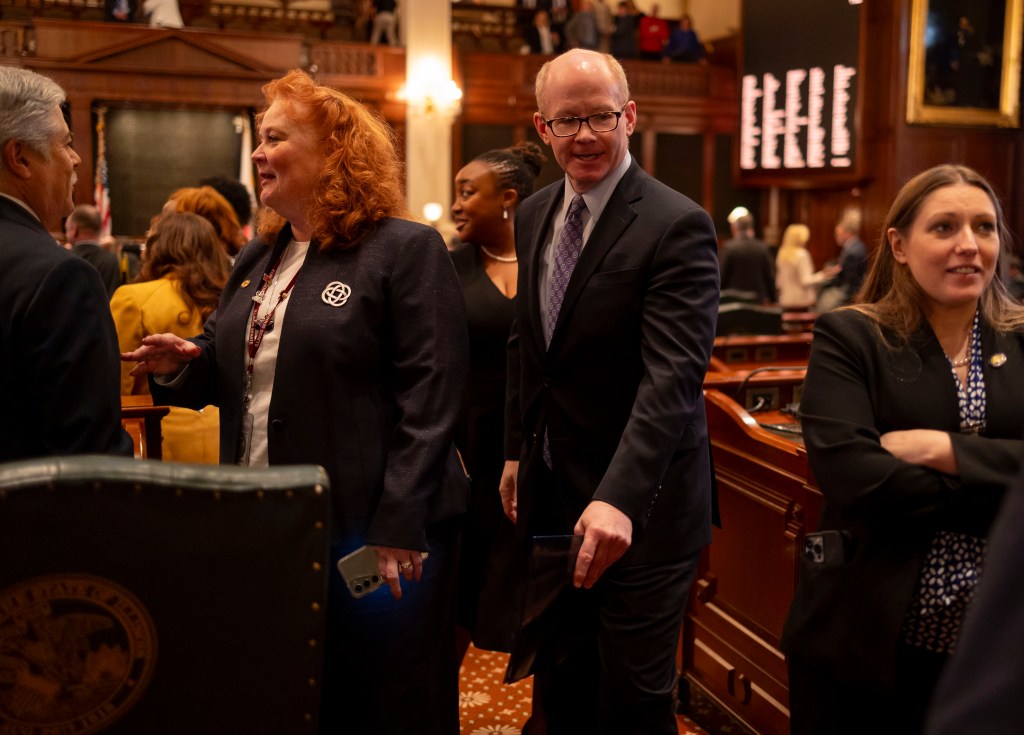An investigator locates an eyewitness who proves it was impossible for you to have been at the scene of the crime. A forensic expert finds a lab error that shows your little sister’s vape pen isn’t actually cannabis. A clinical evaluation reveals that your nephew’s so-called confession to the crime was coerced.
If you or your loved one were accused of a crime, you would be desperate for an attorney to gather and present any of this information to the court. The right to a strong defense, guaranteed in the Sixth Amendment to the Constitution, is a bedrock American principle. But, despite the heroic efforts of public defense attorneys across the state, it remains little more than an ideal for many Illinoisans accused of a crime who cannot come up with the money needed to mount a robust defense.
A 2021 report on Illinois public defense funded by the U.S. Department of Justice and commissioned by the Illinois Supreme Court is clear: Current conditions have resulted in people being denied their rights. Multiple studies — including a multiyear, interdisciplinary assessment of public defense budgets and projected staffing levels in each of Illinois’ 102 counties led by my colleague Julie Biehl at the Northwestern University Pritzker School of Law — have documented:
- Public defense is inadequately staffed and resourced in each of Illinois’ 102 counties. Public defenders across the state have lacked money to pay for paralegals, case management systems, office space, social workers, mental health experts and investigators — even for databases to research the law.
- On top of baseline deficiencies, broad geographic disparities in county funding and wide racial disparities in caseloads result in the rights of rural, Black and Latino clients being most affected by the lack of resources.
- While every county has a full-time state’s attorney, in 60% of Illinois counties, there is no full-time county public defender. Instead, in those counties, judges appoint local private practice attorneys using flat-fee contracts, which the American Bar Association says are unacceptable because they “reward counsel for doing as little work as possible.” In rural areas, one attorney may be responsible for the defense work in multiple counties at once. It is a testament to their passion that so many publicly paid defense attorneys continue to work their fingers to the bone under such circumstances — but it should not be necessary, and most importantly, it still leaves clients suffering from resource gaps.
- Judges outside of Cook County appoint and remove chief public defenders at will — and attorneys who have spoken out about unconstitutional conditions and impossible workloads in their office have been summarily removed on more than one occasion. Public defense budgets are set and managed by local elected officials, judges or both, despite national standards that call for a system that is independent and insulated from judicial conflicts of interest and political winds.
- Although the state of Illinois is responsible for ensuring that public defense is adequately and effectively provided, it currently has no way to track whether this is happening or what the consequences are. What are the current workloads? Do they violate national standards? How quickly are additional resources delivered when they are needed? The state of Illinois could be sued over the answers to these questions — but currently cannot answer them, much less manage them.
The good news is that there is a solution. And there is support in Springfield to make it happen.
Under the leadership of Senate President Don Harmon and the Illinois Supreme Court, the Illinois General Assembly put this issue on the legislative agenda in April, urging consideration of a statewide office to provide public defenders with support they so badly need.
“With our increased emphasis on a fair criminal justice system, it’s critical that defendants who can’t afford counsel have access to a public defender,” Harmon said in the Tribune last month. He said his goal was to promote further negotiations with criminal justice reform advocates and to pass legislation by the end of the session on May 24.
In the true spirit of democracy, those negotiations are happening, and there is now a more detailed proposal pending, one that has extensive feedback from the public defense community, various justice system advocates, and state and national researchers. Known as the Funded Advocacy & Independent Representation, or FAIR, Act, it would immediately address structural deficiencies affecting defense, while allowing for a community- and client-centered, defender-led planning process to build up defense services in every corner of the state.
Legislators should follow the lead of Harmon and create a statewide public defense system that is organized around the needs of clients and responsive to the expertise of public defenders, and builds capacity for the state to meet constitutional standards.
According to the National Registry of Exonerations, Illinois leads the U.S. in wrongful convictions. But these cases, terrible as they are, are the tip of the iceberg, illustrating a much more sizable threat lurking below the surface. Illinois has, for too long, failed to safeguard the rights of people accused of a crime, regardless of their access to money. The new pretrial system that launched with the SAFE-T Act was a critical step toward addressing this problem.
A fully funded public defense system accountable to the public — not to local politicians and judges — is the next needed reform for this session.
Stephanie Kollmann is the policy director for the Children and Family Justice Center at Bluhm Legal Clinic at Northwestern University’s Pritzker School of Law.
Submit a letter, of no more than 400 words, to the editor here or email letters@chicagotribune.com.


